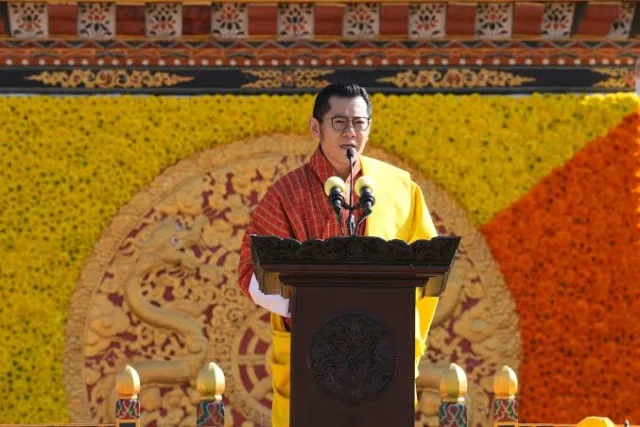On the occasion of Bhutan’s 116th National Day, Bhutan’s King, Jigme Khesar Namgyel Wangchuck announced the Gelephu Mindfulness City Project highlighting the growing economic potential of the South Asian region. The corridor will start from Gelephu or Samdrup Jongkhar and travel through Assam and Northeast Indian states, Myanmar, Thailand, Cambodia, Laos, Vietnam, Malaysia, and Singapore. Due to the distance it covers, the corridor will connect South Asia and Southeast Asia.
The Benefits of SAR:
The Gelephu Special Administrative Region or SAR has the authority to formulate new laws and policies. Configured as an autonomous economic hub with legal independence, this SAR has the aim of becoming a distinct economic center that can invite foreign investments through compelling incentives and favorable business practices. Its establishment is in line with the creation of a vibrant economic hub that goes much beyond any conventional models. With its roots in the values of Gross National Happiness (GNH), the SAR’s larger aim is to create a Mindfulness City that fosters conscious and sustainable businesses as per Bhutan’s Buddhist spiritual heritage and cultural identity. In order to ensure adherence to Bhutan’s cultural values, there will be a careful screening process for companies and individuals who wish to enter Gelephu. This will allow the entry of only those aspirants who align with Bhutan’s culture and values.
Gelephu Mindfulness City spans around 1000 square kilometers and represents only 2.5% of Bhutan’s total surface area. The project is expected to bring significant development to the country’s economic growth by inviting investments in public infrastructure, necessitating improvements in roads, bridges, and airports. Furthermore, it is expected to create opportunities in the private sector too, in turn creating demand for goods and services. Foreign Direct Investments (FDI) will also create more job opportunities for the youth, offer international salary scales and provide exposure to technological advancements and varied skills.
The SAR project is premised on three key objectives: energy, connectivity, and skills. The project aims to harness all forms of energy sources—solar, wind, thermal, and hydropower—which will provide a necessary boost to the economy, reduce migration, and foster the equitable economic development of the nation. Furthermore, this corridor is supposed to connect Bhutan to the world, serving as a conduit to innovative ideas, knowledge, global markets, capital, and technology.
The King’s Address:
His Majesty Jigme Khesar Namgyel Wangchuck in his address to the nation touched upon several aspects of the project, specifically highlighting the importance of working unitedly for Bhutan’s development and the role of multilateral relations in making this project a success. He said that they were “in a unique position to reap great benefits if they seize the opportunity, make good plans, and work together diligently.” Furthermore, in his address, he anticipates that a “flourishing economy means that our people need not always think of migrating, and the government coffers will be in a better state to distribute wealth more evenly to our people.” Speaking about improving road connectivity in general, the King observed that “the Indian government expressed their full commitment to improve and expand the major roads leading to Bhutan (and) pledged to connect two or three of our border towns with railway lines.”
The project has the potential to speed up the economic growth that the South Asian countries are currently undergoing. With the development of the projects of Chamkharchu, Kholongchu, Dorjilung, Bunakha, Nyera Amari, Wangchu, and Sunkosh already underway in Bhutan, the SAR will surely expedite the process and literally bridge the gaps among nations for the improvement of their trade relations.









